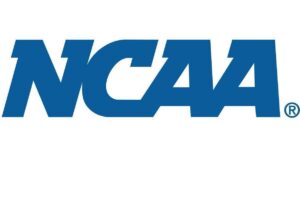
After much pressure from California’s newly signed law ,“The Fair Pay to Play Act,” which allows college student-athletes the ability to make money off their likeness, the NCAA’s Board of Governors unanimously agreed to explore allowing college athletes nationwide to receive those same benefits.
Now that the NCAA has demonstrated its support , questions remain. What are the next steps for schools, particularly Florida A&M University?
“We’re going to just follow what the NCAA protocol is at this time,” FAMU Sports Information Director Brian Howard said. “We can’t do a whole lot because we’re a member body of the NCAA.”
The NCAA will have to spend more time researching to present to schools a plan to give them official rules for how players can be fairly compensated.
Howard explained the process in further detail.
“They’re doing their research for all members,” Howard said. “Which is Division 1, 2 and 3, and they’re looking at projectively 2021- 2022 at coming out with an official finding and a proposed plan to get this bill passed so players can get paid for their likeness.”
When the average fan thinks of a player’s “likeness,” they first think of the jersey sales and video games. But for athletes, there is more money to be made.
“Obviously the hot button topic is jersey sales or player likeness when it’s a name on the back of a jersey the jersey number replicating the player,” Howard said. “But you know autograph engagements and promotional appearances start to become a factor in the player’s likeness as well as poster graphics and those types of things so you are getting into a lot of logistical things when you’re talking about a player’s likeness.”
When the ruling was announced by the NCAA it was met with much fanfare by fans. Howard said he shared their reaction.
“I was extremely fine with it I certainly know with California and Florida’s legislation passing bills to have players paid for their likeness, I knew eventually the NCAA was going to come out and have a stance at some point,” Howard said.
Not everyone in FAMU athletics shares that enthusiasm. Head baseball coach Jamey Shouppe expressed his displeasure with the announcement.
“I don’t like it. I think you’re opening up a can of worms that you’re not going to be able to close,” he said. “I think there are too many potholes for it to go through.”
Shouppe said he believes the potential ruling individualizes team sports leading to a possible conflict for compensation.
“You got a guy on the team that’s scoring touchdowns in football (and) he’s making a lot of money, as the quarterback ( and others on the team are going to) want to know where’s mine because I’m the one handing the ball off,” said Shouppe. “I think it puts too much of an individual focus on a team sport and I think because of that there’s going to be some problems.”
Most current student-athletes are happy with being able to profit off their likeness. Some athletes wished this decision would have come sooner due to the financial needs of student-athletes
When asked how soon this new ruling should have gone into effect, FAMU safety Markquese Bell says this should happen as soon as possible.
“ASAP, because student-athletes now at a lower level (school) you know aren’t power five conferences don’t get as much funding as power five athletes,” said Bell. “So me coming from a power five school (and) I know they get stipends every month, but schools like HBCUs and FCS schools only get a financial check every semester and we have to stretch that throughout the whole semester.”